As their youngest daughter plays games on her fifth birthday, mum Priya reflects on relief at being back in her community and her hopes for the future.
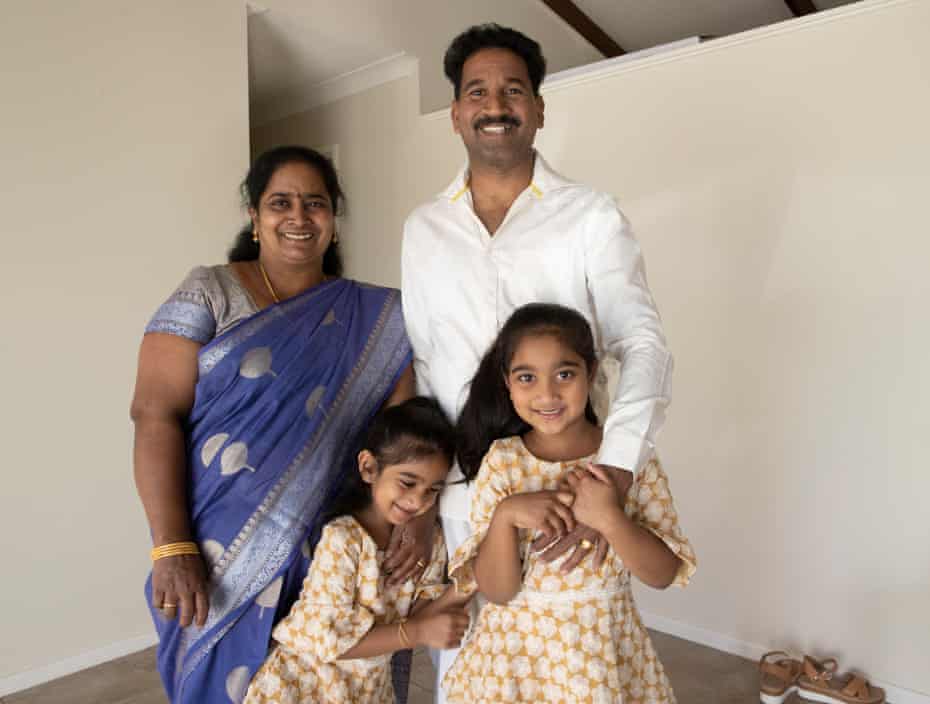
Birds squawk in the paperbark trees lining the road as mum Priya strolls in and out of the kitchen, determined to make sure we are looked after, offering us tea and water.
The girls, Tharnicaa, 5, and Kopika, 7, are out of sight for just a few moments before we find them throwing dirt in the air like confetti, soil stained on their jean shorts, running around the Hills Hoist. Kids being kids.
Kopika lets out a scream and friends of the family rush over with spray for an ant bite.
This weekend, the Tamil asylum seeker family returned to the simple suburban Australian life they’ve longed for since they were taken from Biloela four years ago.
“Last night, good sleep,” Priya says. “For a long time, I don’t sleep.
“First thing I did was I went to the church and prayed and then I came back to the house.”
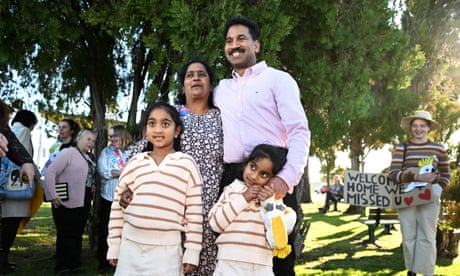
Since they touched down at Thangool airport, the Nadesalingam family have been shielded by supporters, who are rightfully protective of the family after all they’ve been through.
Guardian Australia is one of only two media outlets that has been invited into the family home, after our reporter Ben Doherty broke the news of the family’s removal from the town in 2018.
“I hope they go to study, they go to university … I hope their future is [to become] doctors,” she says.
Tharnicaa celebrated her fifth birthday on Sunday, arriving to the pink-themed party wearing a tiara and birthday sash. It was the first birthday the Australian-born child has spent free from detention.
Invited by the family and Home to Bilo campaign, the media stood at a distance – except for a few brief moments, as when the Nadesalingams posed for a group photo and the crowd sang Tharni “Happy Birthday”.
There was a mutual but unspoken understanding between journalists that it was time to let the Nadesalingams get on with life. So there was an air of surprise when Nades, who was joining his daughters at games of limbo, musical chairs and pass the parcel, approached reporters, generously offering birthday cake.
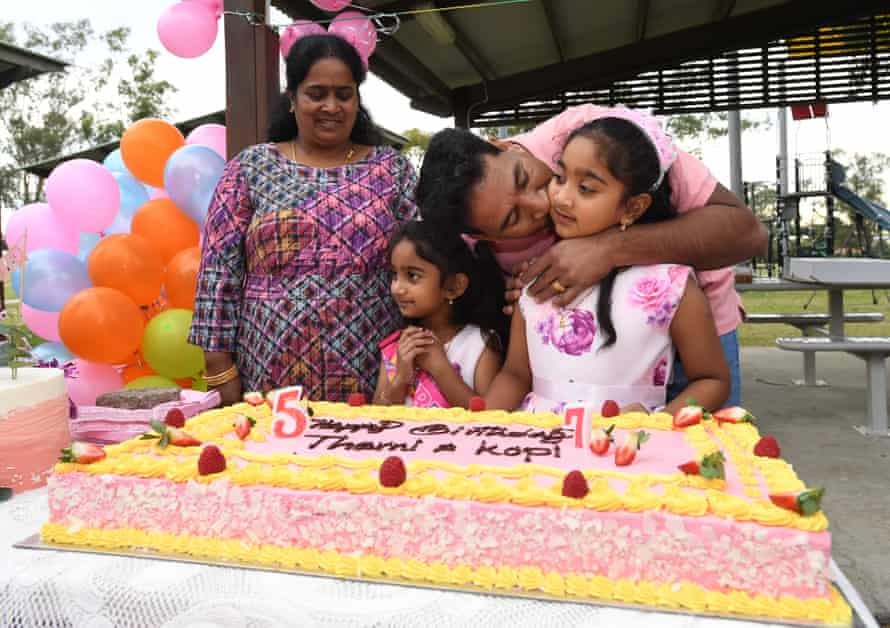
The night before Tharnicaa’s party, Priya took the stage at the Flourish festival. She wore a purple sari as she told Biloela’s packed Civic Centre that she would “dedicate” her “life” to the small country town.
“I feel fulfilled when I touch this land and I feel like I was reborn again,” she said.
“Each one of you from this town have fought so much. You have dedicated so much to bring us home and I’m so grateful for that and I can’t thank you enough for that.”
The night’s grand finale was a hearty rendition of I am Australian, a strong signal of acceptance for the Tamil family – who were special guests at the event.
But Priya has vivid memories of the pain she felt when she, Nades and the girls were taken from the town in 2018 in an early morning raid, given 10 minutes to pack and sent to a detention centre in Melbourne.
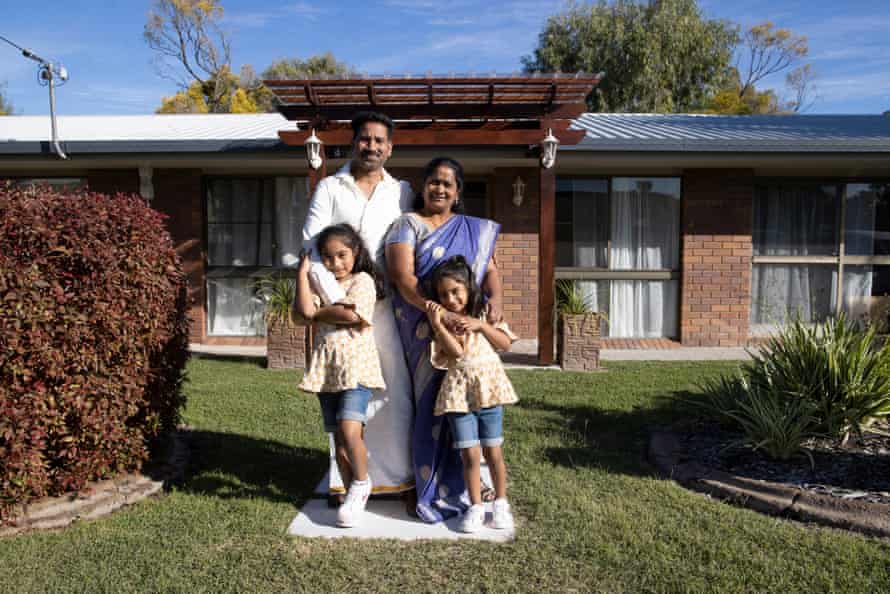
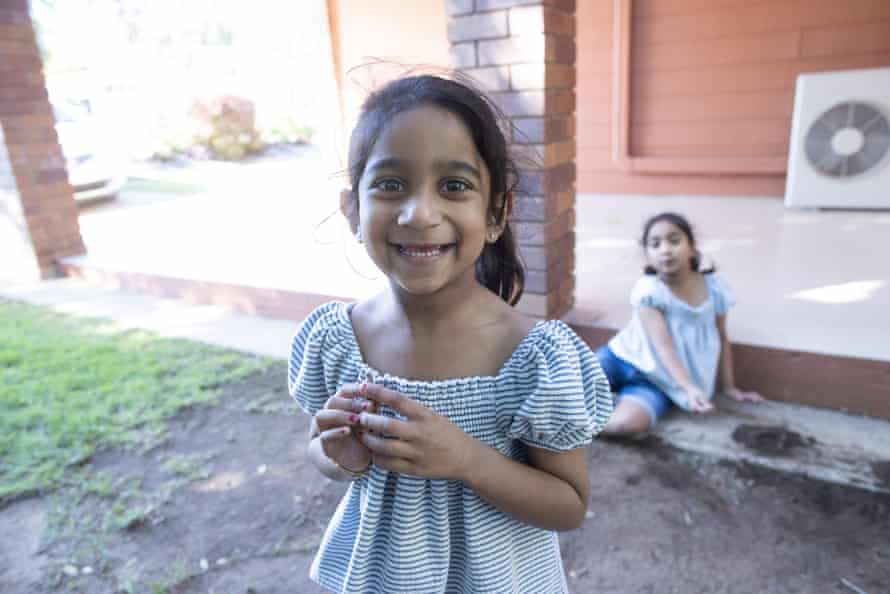
There were reports at the time that Priya had to pre-chew her daughter’s food because of the teeth issues.
Priya also remembers when the family came close to deportation in August 2019 when they were put on a plane headed for Sri Lanka – only narrowly halted by a last-minute court injunction.
“Only that day I happen to know that in Australia, they will treat people badly. They separated my children from me, they separated my husband from me, they put him in a different van,” she says.
“Tharnicaa was screaming for me to come. I never imagined those things will happen to me here in Australia. I came here seeking safety.”
The family were detained in a mostly empty detention centre in Christmas Island at a cost to taxpayers, until Tharnicaa’s health deteriorated and she was rushed to hospital in Perth.
A decision by then immigration minister, Alex Hawke, to grant Priya, Nades and Kopika bridging visas – but not Tharnicaa – meant the family were stuck in an intimidating and unfamiliar city, living in community detention.
Election night was tense for Priya – everything was riding on Labor winning the election, with the party having promised to send the family home to Biloela if they were elected.
Priya was nervously pacing the house with the TV blaring in the background. The children knew that if there were more red seats than blue, they’d be able to return home.
“My girls were really excited. I was getting worried in the first place because there weren’t a lot of red seats, I got a little bit stressed,” Priya says.
“The girls started to cheer and called me and let me know ‘mum, red colour is leading and we get to go home. We are going home to Bilo’.”
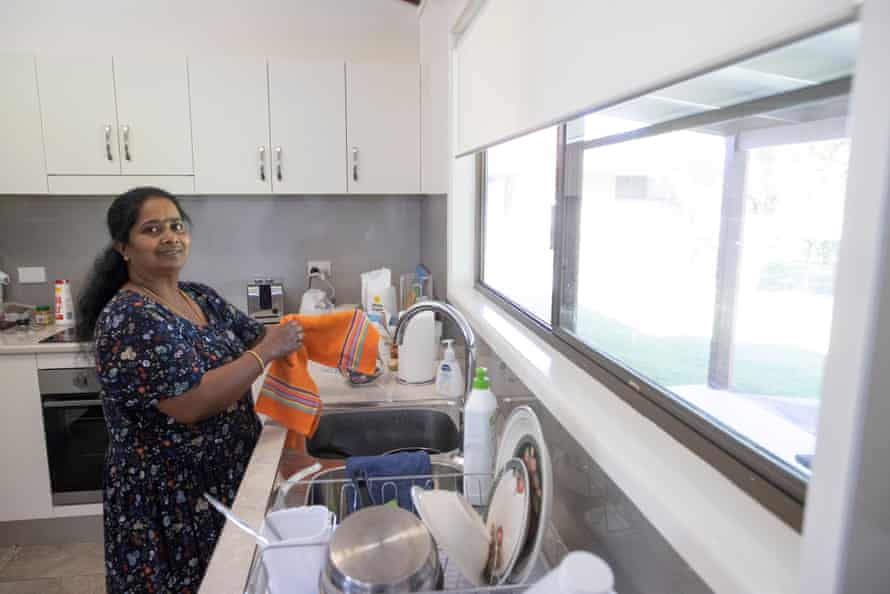
After all she and her family has been through, Priya hopes her experience will trigger compassion and spark a broader change in Australia’s immigration policy.
“I am hoping that some things will change in politics. That other refugees don’t have to go through what I’ve been through. I’m hoping this new government will give some hope for other refugees too,” she says.
All weekend, Priya and Nades have shared knowing glances and smiles. The girls tell friends they are excited to see the cockatoos and start at the local school. At the end of each day, they return to their home, furnished by friends and advocates who had spent weeks excitedly planning for their arrival.
When asked about how the family will settle back into the town, Priya is not worried. They are back where they belong.
No comments:
Post a Comment